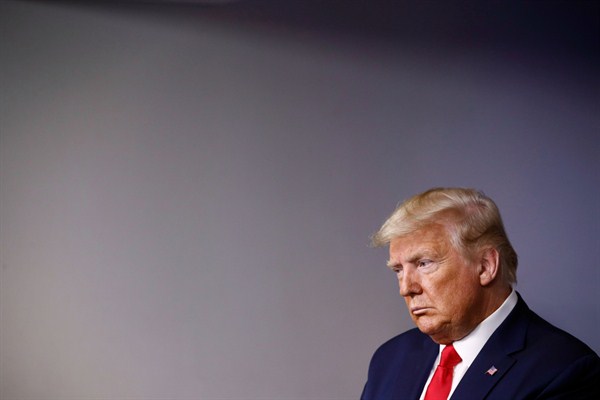President Donald Trump has been pilloried for jeopardizing thousands of American lives through his delayed domestic response to COVID-19. His failure of global leadership, however, has been equally glaring. Rather than rallying other nations in a collective effort, he has doubled down on his “America First” instincts, as if a purely national approach could defeat a global pandemic.
The contrast with his immediate predecessors is stark. In the depths of the global financial crisis in 2008 and 2009, Republican George W. Bush and Democrat Barack Obama both spearheaded a multilateral response that helped rescue the world economy. Trump’s disastrous unilateralism, on the other hand, exposes the limits of nationalism in an era of shared threats. It also underscores the pressing need for a standing global coalition akin to the G-20 to galvanize international cooperation during global public health emergencies, alongside existing entities like the World Health Organization.
The global financial crisis is on everyone’s mind today, as the world again faces a dramatic slowdown in economic growth and policymakers seek to stave off a coronavirus-induced recession. Missing this time around is any credible American leadership. A dozen years ago, as the world looked into the economic abyss, the United States engineered a decisive, coordinated international response, within both informal coalitions and established international institutions. A pivotal moment came in November 2008, when Bush, in the last weeks of his presidency, convened the first leaders-level summit of the G-20, which had previously been a smaller forum for finance ministers. The Washington conference was a seminal event in international cooperation, reflecting both the gravity of the moment and a new global reality: In moments of grave economic crisis, the world’s most important emerging powers, not just its established ones, needed to be at the table.

